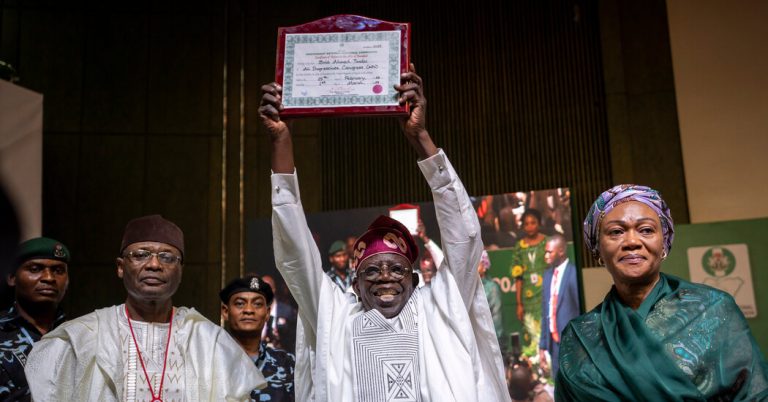The Editorial Board of the Washington Post, a US-based and globally respected media outlet, has praised the victory of the APC’s Bola Tinubu in Nigeria’s just concluded presidential elections as a sign of the country’s resilient democracy and a positive example in the African continent.
The powerful vote of confidence, based on the reports on international observers and diplomatic chatter since the conclusion of Nigeria’s general elections, was published on Monday, the 20th of March.
According to the Editorial Board, “Nigeria’s neighbours and major trading partners, including the United States, have all accepted the result, which most international observers said was largely free and fair, despite problems.”
“Officials have asserted that technical glitches, not sabotage, were the issue and have cited poor internet connections and heavy traffic that slowed the system,” it continued.
“Even a flawed election in Nigeria can set a standard in a part of Africa where staging a coup is more common than canvassing for votes. Among Nigeria’s neighbours, Chad’s military leader, Mahamat Idriss Deby, who seized power when his father was killed in 2021, has repeatedly delayed elections and halted a return to democracy. Military leaders in Mali, which saw coups in 2020 and 2021, have delayed elections until 2024. Guinea’s first democratic leader was toppled in 2021. Niger has been rocked by coup attempts. Benin’s president, Patrice Talon, has clung to power and stacked the parliament, which must approve presidential candidates, with his supporters. In Cameroon, President Paul Biya has ruled since 1982.”
“An election in Nigeria won’t turn Africa into a democratic utopia. But it can point the way to a different path,” it concluded.
Analysts say the editorial reflects the broad acceptance of an impending Tinubu presidency as the product of the popular will of Nigerians, despite legal challenges set in motion by his opponents, including Atiku Abubakar and Peter Obi.
The fact that both Atiku and Obi, two of whom paired in 2019 to unsuccessfully challenge the APC, are both claiming victory weakens their claim and underscores Tinubu’s success, given the broken and divided state of the opposition.
Indeed, Atiku’s party, the PDP, lost its momentum and previous spread as the main opposition party after conflict broke out between its leaders, resulting in the chaotic division of the party into different factions, some of which actively embraced Tinubu and helped him clinch victory in key regions and states across the country.

